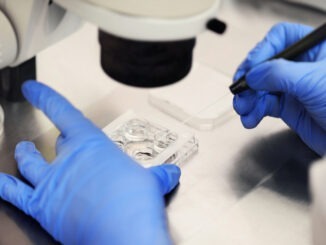
As reported by the BBC, getting pregnant within a few months of an abortion or a miscarriage does not appear to be extra risky for the mum and baby, research says
The World Health Organization (WHO) recommends at least a six-month gap to give the woman time to recover. But a study in PLoS Medicine, analysing 72,000 conceptions, suggests couples might safely try sooner for a baby.
The WHO says more research into pregnancy spacing is already under way and would inform any future updates to the advice.
The research from Norway, spanning eight years from 2008 to 2016, found no major differences in outcomes when a new pregnancy happened sooner than a six-month delay.
The authors of the latest Norwegian analysis say the advice needs reviewing so that couples can make an informed decision about when to try for a baby.
Asking parents to wait six months after a miscarriage or an abortion may be unacceptably too long for some, particularly when the emerging medical evidence does not appear to support it, they say.
Experts agree that being in good health increases your chance of conceiving. Women are advised to take folic acid tablets daily while trying to get pregnant and up until 12 weeks of pregnancy.
It reduces the risk of having a baby born with defects of the brain, spine or spinal cord, such as spina bifida.
Early miscarriage happens to about one in five (20%) women in their lifetime. Often, no cause is found.
If you have had one miscarriage there is usually a very good chance that your next pregnancy will be successful. Recurrent miscarriage is rare.
But emotional health is also a consideration. Some couples feel they need some time to prepare themselves emotionally and physically for a new pregnancy.
“You may need to allow yourself time to grieve for your lost baby before you think about the future. Other couples feel trying again will help them come to terms with what has happened,” says Tommy’s.
“It is an individual choice or one you need to make as a couple if you have a partner.”


Be the first to comment